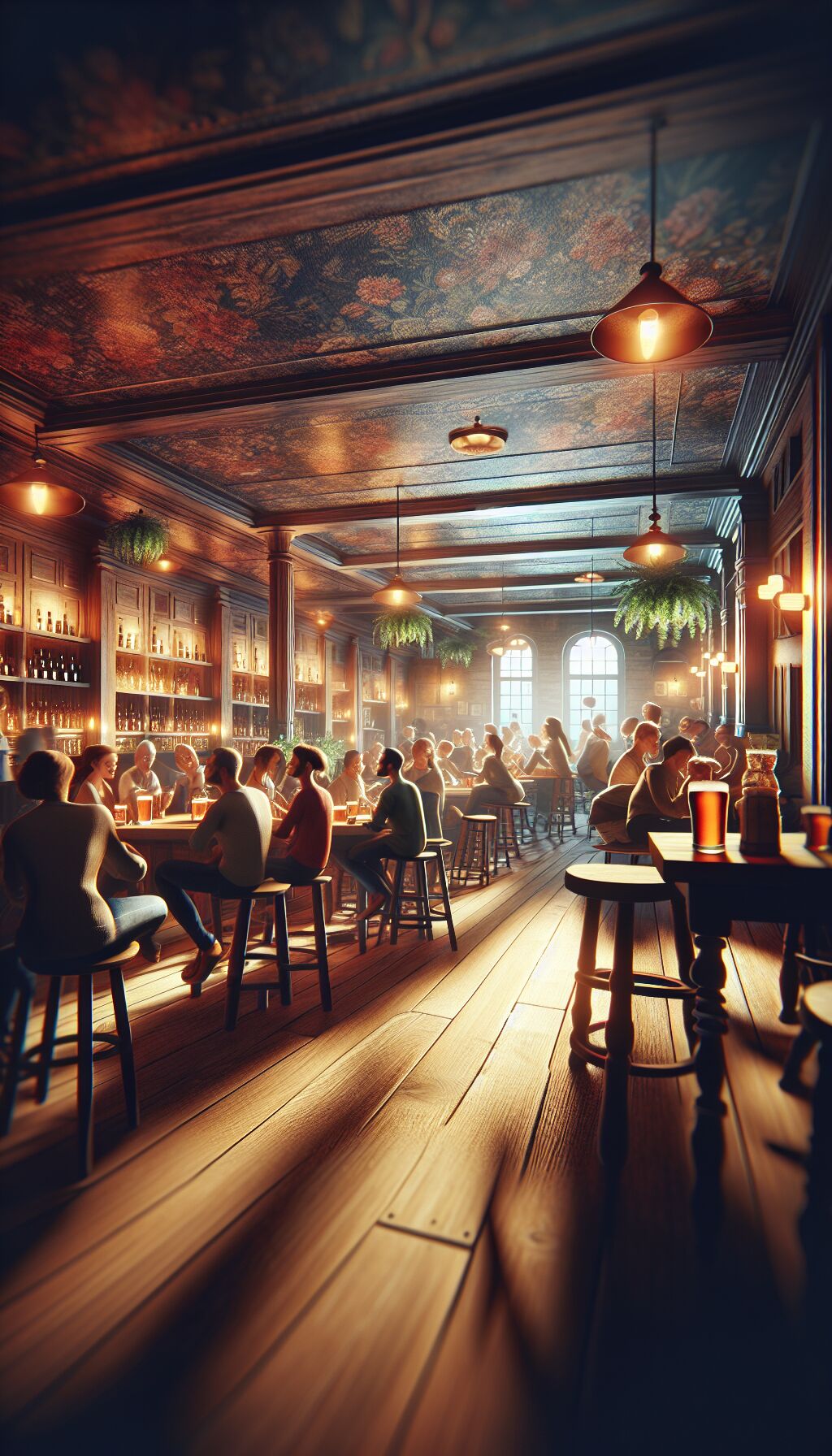Pubs and Bars Experience Resurgence While Nightclubs Decline
A new report sheds light on the shifting dynamics within the nightlife economy, highlighting a marked increase in the popularity of pubs and bars while nightclubs continue to struggle. This trend has become increasingly relevant as the hospitality industry navigates the lingering effects of the global pandemic, evolving consumer preferences, and changing social behaviors.
The Rise of Pubs and Bars
According to the report, the resurgence of pubs and bars can be attributed to a confluence of factors. After prolonged periods of lockdowns, these establishments have re-emerged as favored venues for social gatherings, offering a more laid-back atmosphere compared to the high-energy environment of nightclubs. Consumers are opting for spaces where they can enjoy casual conversations, craft beverages, and live entertainment.
The report notes that pubs and bars have made significant adaptations to attract their clientele, enhancing their offerings with unique events such as quiz nights, live music performances, and themed parties. These initiatives have not only helped to draw in customers but have also fostered a sense of community that many patrons have been yearning for after months of isolation.
Changing Consumer Preferences
One of the key factors driving this trend is a shift in consumer preferences. As people re-enter the social scene, there is a notable desire for experiences that prioritize comfort and connection over vigorous nightlife. Market research indicates that patrons are increasingly valuing experiences that allow for meaningful interactions, leading to a significant uptick in visits to pubs and bars.
Additionally, the experience of socializing outdoors has gained prominence, particularly in the wake of the pandemic where outdoor dining and drinking became essential. Many pubs have capitalized on this by enhancing their outdoor spaces, creating inviting environments that cater to both individuals and large groups.
The Challenges Facing Nightclubs
In stark contrast to the pubs and bars, nightclubs are facing formidable challenges. Many establishments have reported a continual decline in patronage, grappling with changing consumer attitudes towards nightlife. While younger demographics once flocked to nightclubs, many now prefer more relaxed social settings where they can engage in conversations without the overpowering noise and frenetic energy typical of these venues.
The report highlights that nightclubs are struggling to adapt to this new landscape. Some have attempted to pivot by diversifying their offerings—introducing day parties, brunch events, and even wellness activities to attract a broader audience. Despite these efforts, the data indicates that many are not finding the success they anticipated, with some venues even closing their doors permanently.
The Impact of the Pandemic
The COVID-19 pandemic has undeniably reshaped the nightlife landscape, with widespread closures and lockdowns contributing to the decline of nightclubs. For many, the shift towards a more health-conscious lifestyle post-pandemic has also influenced entertainment choices. The heightened awareness around social interactions and health guidelines has made patrons more selective about where they choose to spend their evenings.
As restrictions have eased, some nightclubs have resumed operations, but they are facing the dual challenge of recovering lost revenue while also accommodating evolving consumer expectations. The significant investment required to adhere to safety guidelines, coupled with reduced capacity limits in many jurisdictions, has further complicated their recovery efforts.
Future Prospects
Looking ahead, the report underscores a potential crossroads for nightclubs. To remain viable, many may need to rethink their business models entirely, embracing flexible approaches that can cater to diverse consumer tastes. Integrating technology for hybrid experiences—combining in-person and virtual elements—could be one way to rejuvenate interest in the nightclub scene.
Meanwhile, pubs and bars are likely to continue flourishing, provided they maintain their current trajectory of innovation and adaptability. The focus on local sourcing, community engagement, and creating a hospitable environment will remain essential for retaining their newfound clientele. Events centered around craft beverages, food pairings, and local artists can keep the momentum going and foster sustained loyalty among patrons.
Conclusion
The nightlife economy is undergoing a significant transformation, with pubs and bars enjoying a renaissance while nightclubs grapple with decline. Understanding these shifts is critical for stakeholders in the hospitality sector as they navigate a post-pandemic landscape. By adapting to evolving consumer preferences and focusing on creating meaningful experiences, pubs and bars will likely continue to thrive, while nightclubs must innovate to reclaim their place in the nightlife hierarchy.
As the report indicates, the future of nightlife is dependent on adaptability and an understanding of customers’ changing desires—a challenge that could redefine how we socialize in the years to come.
This HTML document presents an article styled with headings and paragraphs while maintaining a journalistic approach, covering the resurgence of pubs and bars and the ongoing decline of nightclubs.
